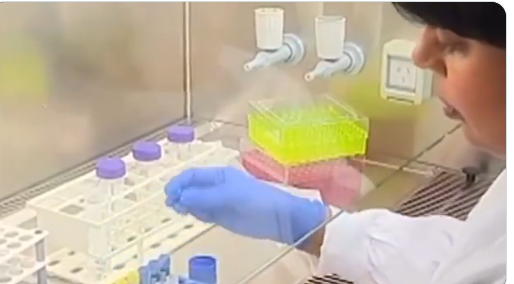Doctors are finally allowed to question the narrative. Dr. McCullough, Dr Malone and others cleared the way for real freedom of information to exist in light of all of the deaths and cancers caused by the vaccine
A group of concerned US doctors and scientists is currently exploring whether COVID-19 may be responsible for a noticeable increase in rare and deadly cancers observed since the onset of the pandemic. These medical experts have initiated collaborative research efforts and are sharing data after observing an unusual pattern of cancer cases that may be linked to COVID-19 infections among their patients.
Unfortunately, exactly as I predicted. Spike suppressing p53, etc, would result in an explosion of cancers.
"Covid is to blame…"https://t.co/KOIjrRDwr7
— Walter M Chesnut (@Parsifaler) June 6, 2024
Kashyap Patel, an oncologist with 23 years of experience and CEO of Carolina Blood and Cancer Care Associates in South Carolina, has noted a significant rise in these cases. Patel is advocating for the creation of a national registry to help analyze and understand these trends. He has already gathered data from numerous patients that suggest a potential connection between unusual cancer diagnoses and long-term effects of COVID-19.
Afshin Beheshti, president of the COVID-19 International Research Team and a specialist in cancer biology, has also expressed concern. During the pandemic, he observed that COVID-19 was causing widespread inflammation and infections in organs, which are typically vulnerable to cancer stem cell development. According to Beheshti, there seems to be a correlation with early signs of cancer development, though he hopes their findings are incorrect.
Despite these observations, there is currently no concrete real-world data or definitive studies confirming that COVID-19 has directly contributed to an increase in cancer cases. However, the noticeable rise in aggressive cancer types since the pandemic began has led some experts to attribute this trend to disruptions in healthcare services. These disruptions include hospitals being forced to turn away cancer patients and delays in diagnoses due to fear of contracting the virus.
.@GMA this is the single best description of #LongCovid I've heard from the media. A persistent infection leading to chronic inflammation and down the road possibly cancer. A covid infection can reduce your bodies natural defenses against cancer. 👏 pic.twitter.com/SQBXNm26J2
— Sue (@inkblue01) June 7, 2024
Nevertheless, the group of US-based doctors is urging the federal government to prioritize research into this potential link, emphasizing that the results could significantly impact cancer treatment and management for decades. Douglas C. Wallace, a geneticist and evolutionary biologist at the University of Pennsylvania, emphasized the need for more investigation into the virus’s effects. He pointed out that the long-term consequences of repeated COVID-19 infections throughout one’s life could be more severe than currently anticipated.
Wallace is specifically looking into how COVID-19 might affect cellular energy production and increase susceptibility to cancer. Concurrently, other researchers are examining the genetic profiles of cancer patients who had COVID-19 and investigating whether the virus can reactivate dormant cancer cells in experimental models.
The inquiry into this possible link between COVID-19 and cancer follows a recent study suggesting that COVID-19 vaccines might have played a role in an unusual increase in excess deaths in the US and other Western countries. This study, conducted by scientists at the Vrije Universiteit in the Netherlands and published in BMJ Public Health, highlighted that excess mortality rates have remained elevated since 2020 despite the extensive distribution of vaccines and various pandemic containment measures. The researchers called on government leaders and policymakers to thoroughly investigate the persistent high rates of excess mortality to understand its underlying causes better.
Major Points
- A group of U.S. doctors and scientists is investigating a potential link between COVID-19 and a surge in rare, deadly cancers observed since the pandemic began.
- Oncologist Kashyap Patel is leading efforts to establish a national registry to study the trend, having noted an unusual uptick in cases among his patients.
- Research includes exploring how COVID-19 may cause inflammation and infections in organs prone to cancer, with early findings suggesting connections to cancer development.
- Some experts attribute the increase in aggressive cancers to disruptions in healthcare and delayed diagnoses during the pandemic.
- Recent studies also explore the possible role of COVID-19 vaccines in sustained high excess mortality rates, urging further investigation into long-term effects of the virus.
RM Tomi – Reprinted with permission of Whatfinger News



